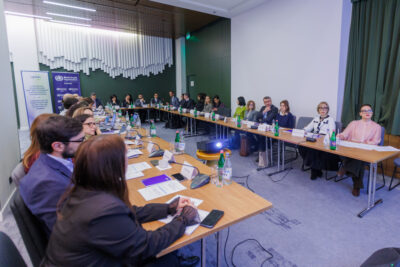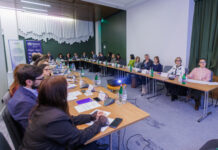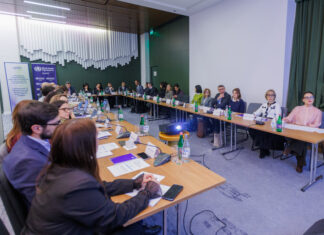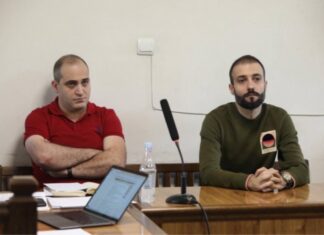YEREVAN (news.am) — The last patients and doctors of the Republican Medical Center of Nagorno-Karabakh left for Armenia in a motorcade on September 28 — five bedridden patients, several more patients moving independently and more than 15 medical workers and technical staff. They took with them what they could: some tools and equipment, medicine and after their departure, the hospital stopped working, said Dr. Artashes Saiyan, reanimatologist at the Republican Medical Center in Stepanakert.
In the front and at the end of the motorcade, according to him, were the ambulances of the hospital with patients in bed. And in between them, there were other patients and medical workers with their families in passenger cars.
Saiyan says the Russian peacekeepers were informed that such a motorcade was moving to Armenia. “But they didn’t accompany us. When we were going down to the river after the Old Shen village, the Russian peacekeepers made an agreement with the other [Azerbaijani] side to open a corridor for us and give us the opportunity to cross the road faster than others in a motorcade. We reached Kornidzor in about 14 hours, which is very fast under these conditions. Because we know that our citizens, unfortunately, have been on the road for 2-3 days, in terrible traffic jams,” he said.
On their way to Armenia, they picked up several more displaced people who needed medical help, including a newborn child with the mother. The motorcade stopped several times to provide aid to those whose health deteriorated along the way. After entering Armenia, the patients were placed in the Goris Medical Center, and there the doctors had to decide whom to leave and whom to transfer to Yerevan.
Saiyan and his family are already in Yerevan, but he still cannot understand why everything happened so quickly. According to his assessment, “artificial political processes” took place.
“When the siege of Artsakh began in December of last year, the hospital switched to a special working regime. Only patients requiring urgent medical care were admitted, all scheduled events were cancelled. There was a shortage of medicines. They began to use them very sparingly. Part of them was kept for the war.








